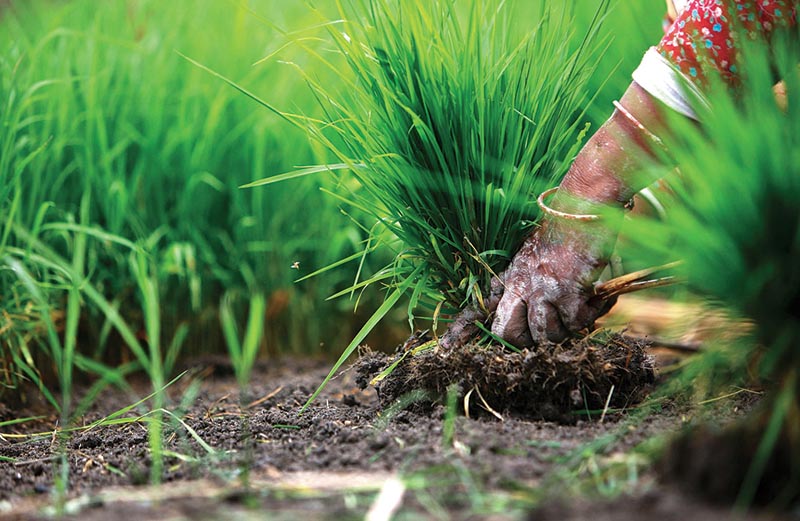‘Paddy seed sowing’ campaign aimed at flood-affected districts in the offing
The government is preparing to launch a paddy seed sowing campaign in various districts of Tarai from next week to assure that production of this cereal crop is not severely affected in the ongoing fiscal year.
Anxious about significant downfall in the production of paddy this year following low plantation rate and heavy rainfall that has triggered floods and landslides in paddy fields, the Ministry of Agricultural Development (MoAD) is planning to distribute hybrid paddy seeds, namely Hardinath-1 and Hardinath-3, that can be harvested within 105 days of sowing in the fields.
As per MoAD, the government is currently developing a seed distribution subsidy package for farmers and will deploy its officials in all flood-hit districts from the next week with the package.
“Undoubtedly, the paddy plantation this year has been affected largely due to adverse monsoon and this will leave negative impact on paddy production. However, we are distributing hybrid paddy seeds to affected farmers and will encourage them to sow the seeds as soon as possible so that they do not face huge losses due to production shortfall this year,” said Yogendra Karki, spokesperson for MoAD.
Moreover, MoAD even plans to compensate the farmers if they do not get good production after sowing such hybrid paddy seeds.
Sowing seeds directly in the fields is regarded as an optional measure adopted internationally, which is used when the agricultural plantation is affected due to natural calamities like floods. However, it is believed that production of agricultural products, especially paddy, is reduced by 10 to 15 per cent when the seeds are directly sowed in the field compared to the production rate in the widely practised method of transplanting the seedlings.
As per Karki, MoAD will start distributing such hybrid paddy seeds once its deployed team submits the final report on the effect of the floods and landslides on paddy farmlands and its plantation. The MoAD has formed six separate teams to determine the loss in agricultural outputs and overall agriculture sector due to the ongoing floods and landslides in Tarai districts. Initial reports suggest that as much as 70 per cent of arable land has been inundated by the floods or damaged by the landslides in the Tarai.
Meanwhile, MoAD is also examining different measures to increase the production of paddy this year, according to Karki. MoAD had projected a growth of 3.25 per cent in the production of paddy to 5.4 metric tonnes this year against the total 5.23 million tonnes of paddy produced in the last fiscal year.






